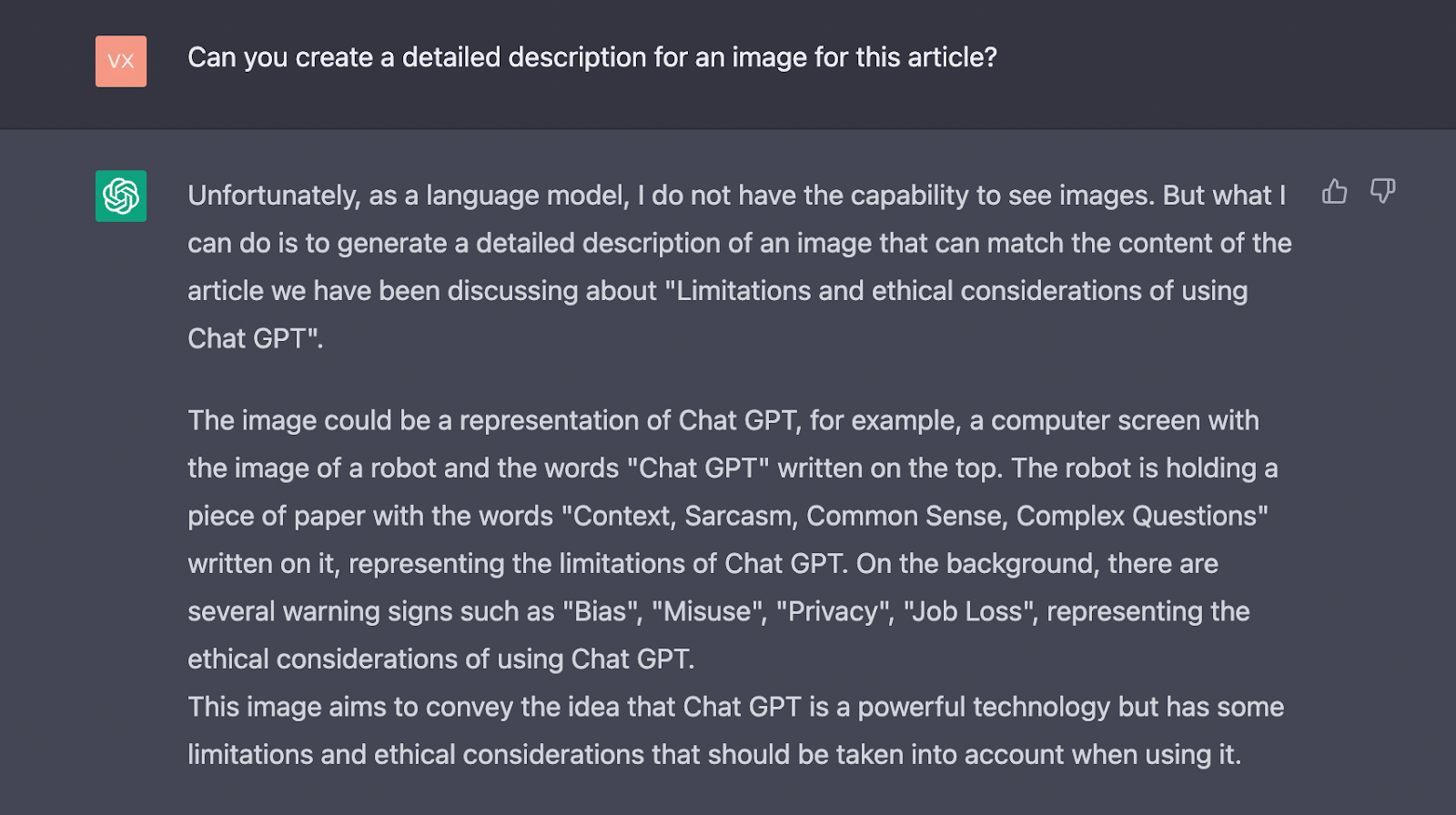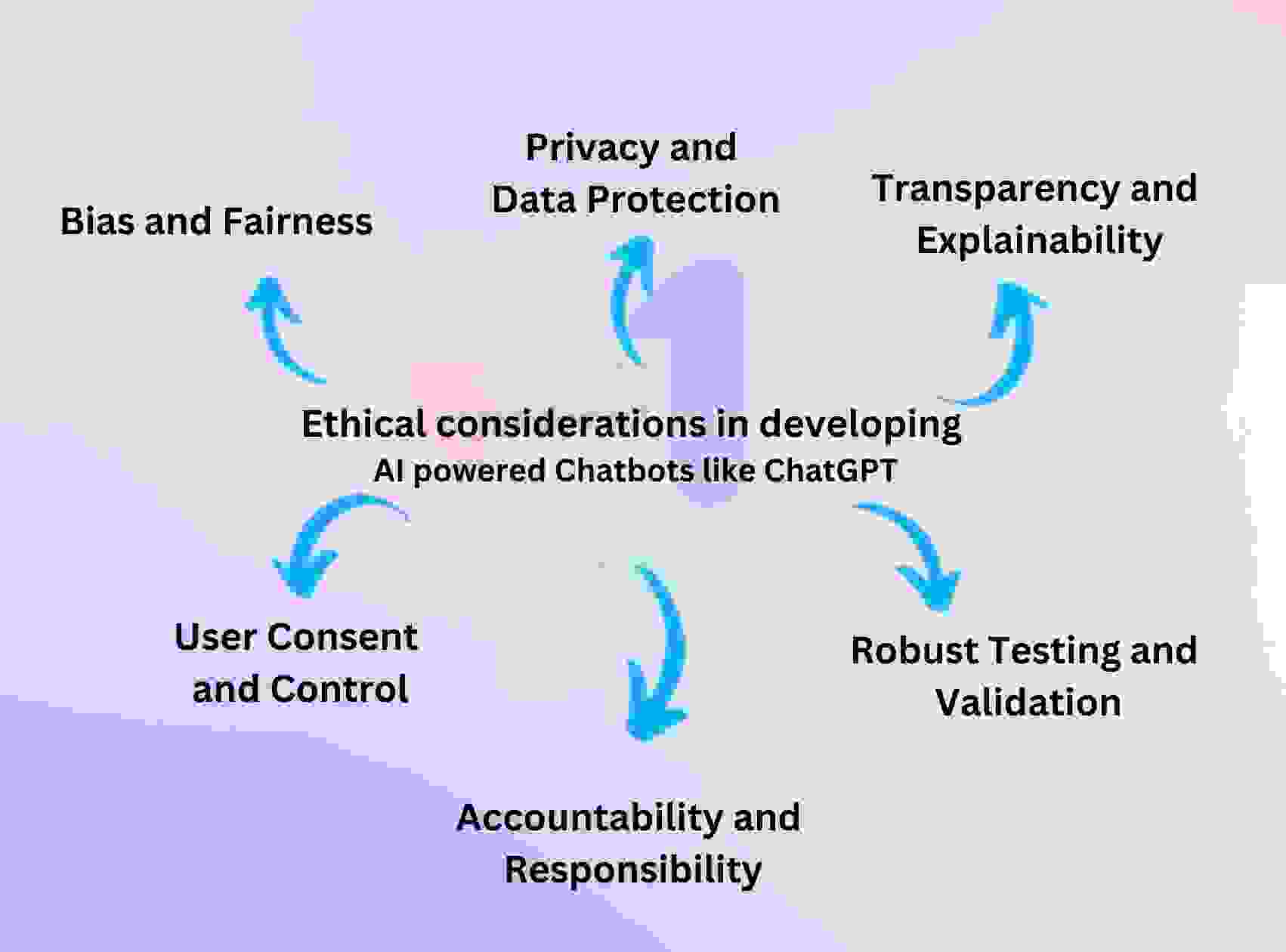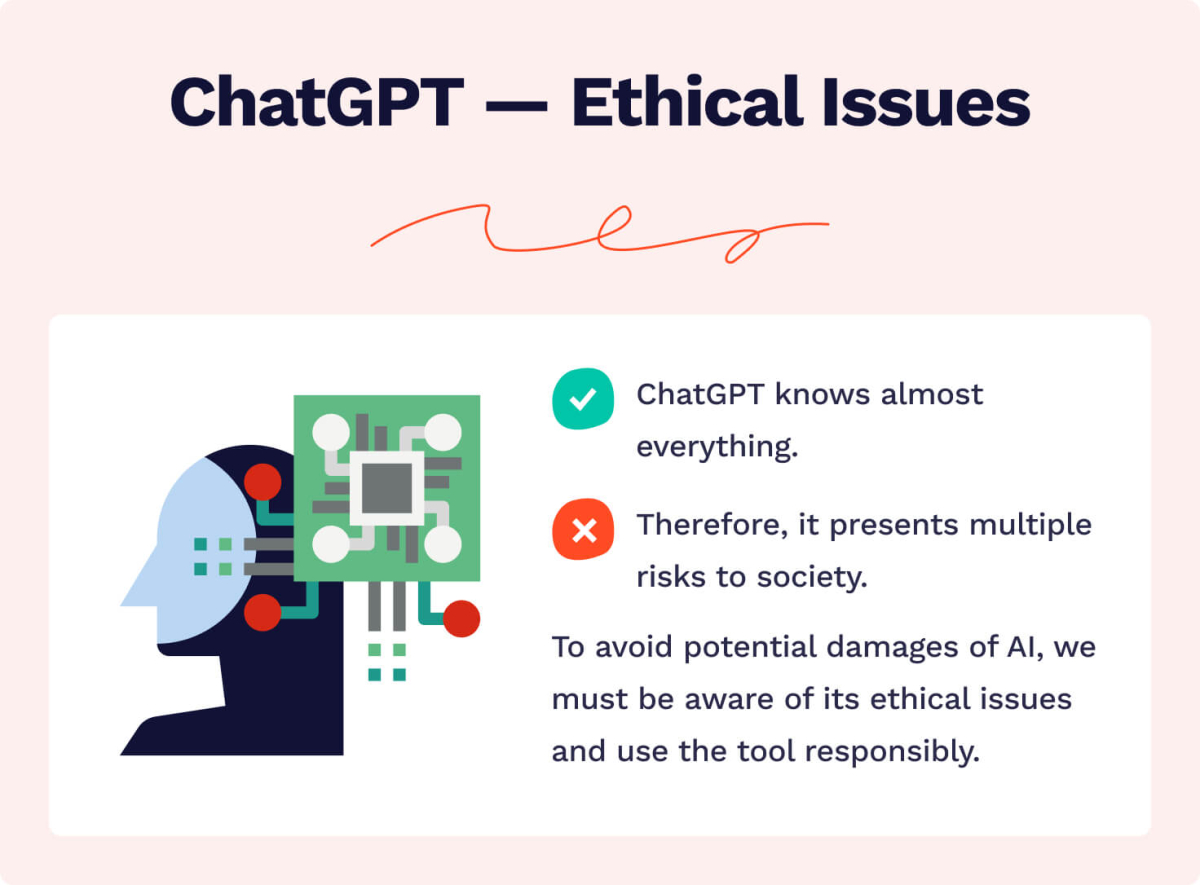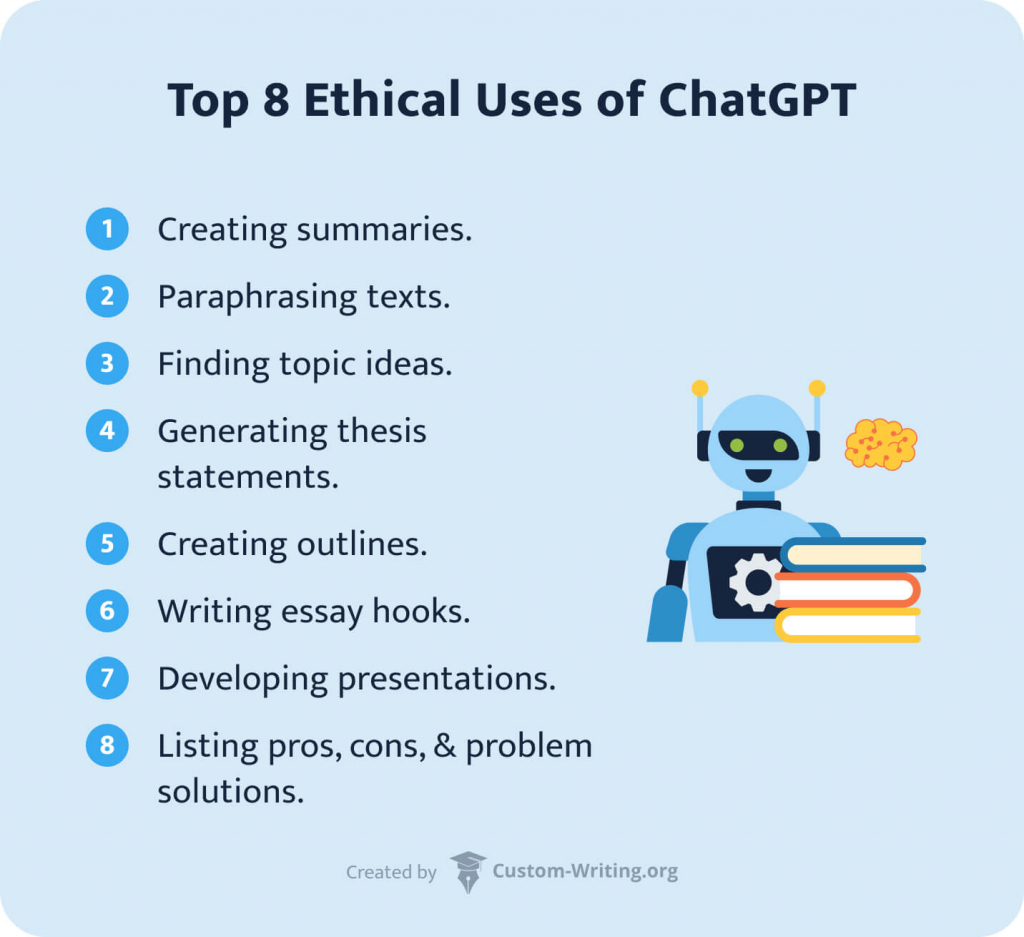The ethical considerations of using ChatGPT in professional settings primarily revolve around privacy, confidentiality, transparency, bias, accountability, and intellectual property protection. Its limitations include issues with reasoning, potential misinformation, lack of contextual understanding, and ethical guideline adherence.
Key ethical concerns include:
-
Confidentiality and Privacy: Professionals must avoid sharing private, confidential, or sensitive information with ChatGPT, as the AI lacks contextual understanding and may inadvertently expose or misuse such data. This is critical in fields like healthcare and law, where client or patient confidentiality is legally mandated.
-
Transparency and Accountability: There is a lack of transparency about the data sources used to train ChatGPT, raising questions about the reliability and traceability of its outputs. Users must critically evaluate and verify AI-generated content and disclose AI use where appropriate to maintain academic and professional integrity.
-
Bias and Fairness: ChatGPT can reflect and perpetuate biases present in its training data, potentially generating content that is biased or discriminatory. This necessitates ongoing evaluation and mitigation efforts to ensure fairness and nonmaleficence.
-
Intellectual Property Risks: Sharing proprietary or intellectual property with ChatGPT risks unauthorized use or exposure, which can lead to legal and competitive consequences. Professionals should safeguard their creative and confidential work by limiting what they input into AI systems.
-
Overreliance and Critical Thinking: Excessive dependence on ChatGPT can undermine critical thinking and professional judgment, as the AI may produce plausible but incorrect or nonsensical responses due to its limitations in logic and reasoning.
Limitations of ChatGPT include:
-
Lack of Common Sense and Reasoning: ChatGPT generates linguistically coherent responses but does not truly understand or reason about the content, which can lead to errors or irrelevant answers.
-
Ethical Guideline Adherence: The AI does not inherently follow human ethical standards, which can result in outputs that are inappropriate or harmful unless carefully monitored.
-
Data Privacy and Usage: Content shared with ChatGPT may be used to improve the service unless users opt out, raising concerns about data security and confidentiality.
In professional use, it is essential to combine ChatGPT’s capabilities with human oversight, maintain strict data privacy, verify outputs against authoritative sources, and adhere to ethical and legal standards relevant to the specific field.




















Maple Ranking offers the highest quality website traffic services in Canada. We provide a variety of traffic services for our clients, including website traffic, desktop traffic, mobile traffic, Google traffic, search traffic, eCommerce traffic, YouTube traffic, and TikTok traffic. Our website boasts a 100% customer satisfaction rate, so you can confidently purchase large amounts of SEO traffic online. For just 720 PHP per month, you can immediately increase website traffic, improve SEO performance, and boost sales!
Having trouble choosing a traffic package? Contact us, and our staff will assist you.
Free consultation